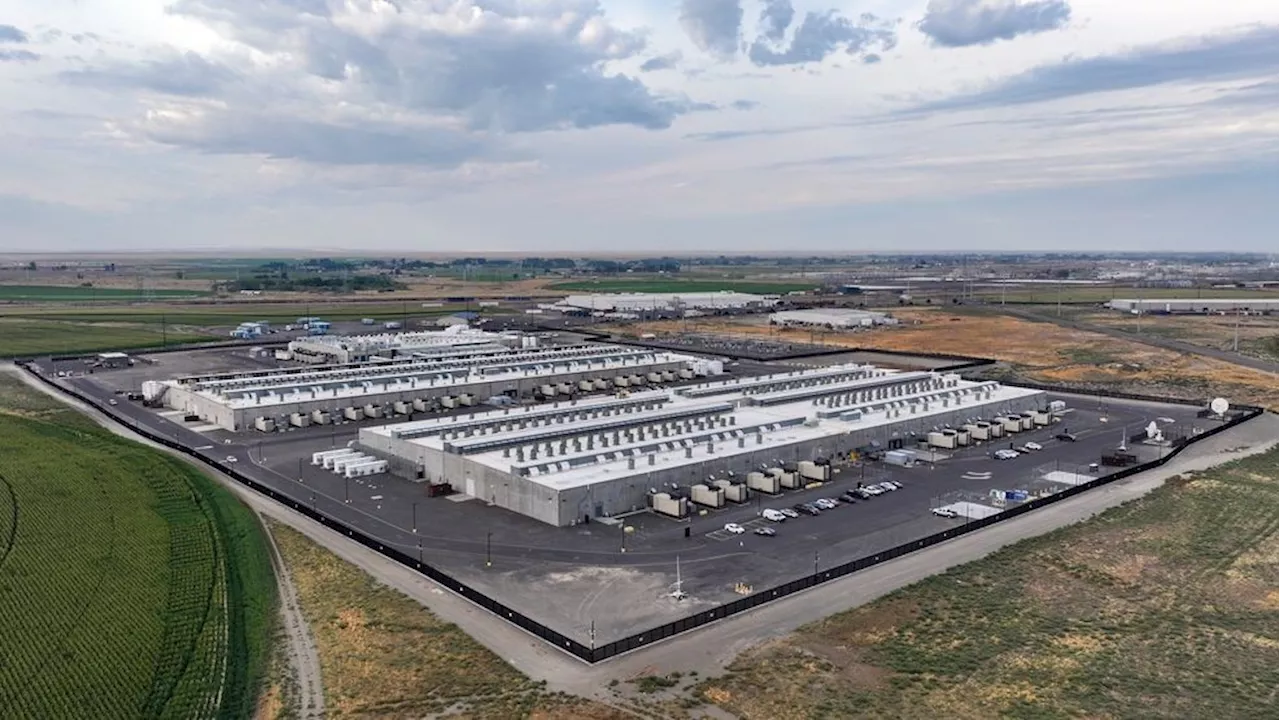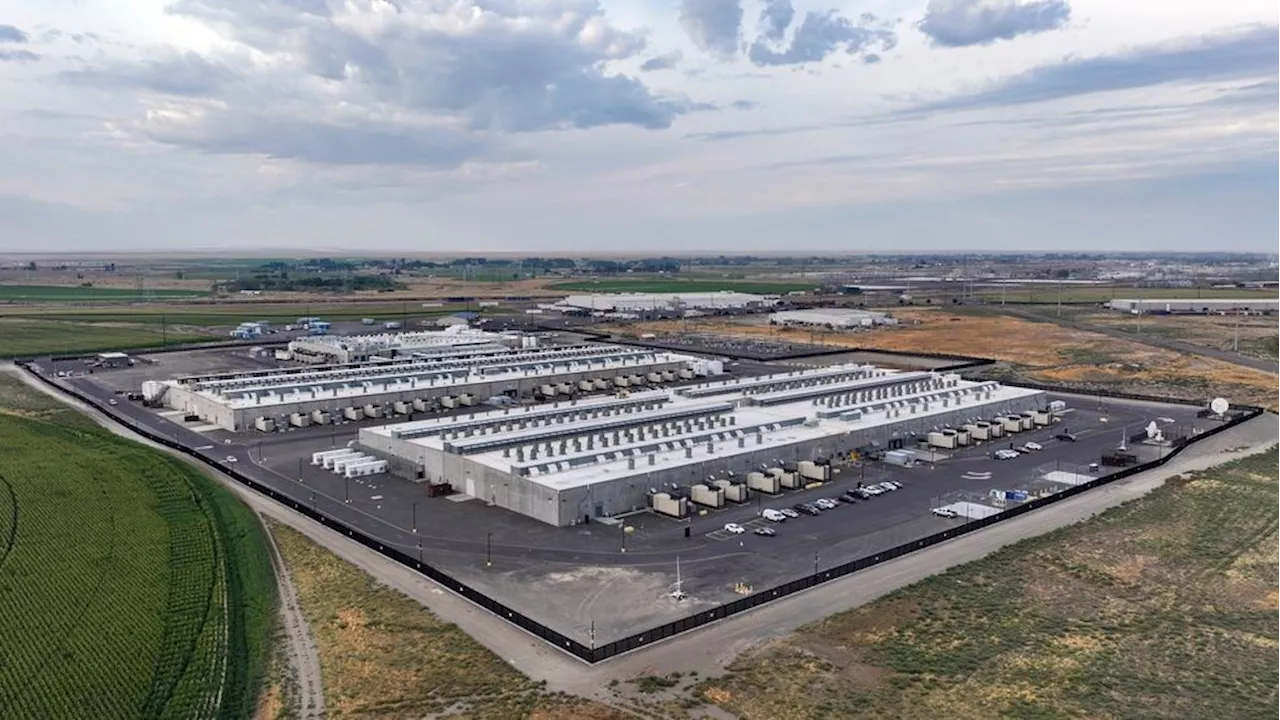Big tech companies are turning to nuclear energy to power their data centers, driving AI development. However, experts warn about the risks and costs associated with this rapid shift.
Big technology companies are making a significant shift toward nuclear energy to power their data centers , which are essential for training artificial intelligence (AI) tools. However, experts are raising concerns about the industry's rapid embrace of nuclear power, cautioning about the inherent risks involved.Recent reports reveal that Google plans to purchase energy from Kairos Power, a developer of small modular reactors.
Microsoft, on the other hand, struck a deal last year with Constellation Energy to revive a dormant reactor at the Three Mile Island plant in Pennsylvania. This location holds a dark history, being the site of the most severe nuclear meltdown and radiation leak in U.S. history back in 1979. In a separate development, Amazon is partnering with Dominion Energy to construct a small modular nuclear reactor near one of Dominion's existing nuclear power stations.All three tech giants are striving to meet the growing demand for generative AI applications, which result in substantial spikes in energy consumption. The International Energy Agency (IEA) projects that electricity usage from data centers, AI, and the cryptocurrency sector will double from an estimated 460 terawatt-hours in 2022 to over 1,000 terawatt-hours by 2026. The IEA further states that U.S. data centers alone consumed more than 4% of the country's electricity in 2022, a figure expected to soar to 6% within the next two years. To illustrate the scale of energy consumption, worldwide Bitcoin mining used 121.13 terawatt-hours of electricity in 2023, comparable to the Netherlands' total consumption in 2022.The use of nuclear energy to meet these demands is not without controversy, particularly among climate activists who express concerns about its hazardous environmental and safety risks. Greenpeace, a prominent climate group, points out that while nuclear energy does not produce carbon dioxide or other greenhouse gases during electricity generation, nuclear waste remains a significant environmental hazard.Additionally, Henry Sokolski, executive director of the Nonproliferation Policy Education Center, raises concerns about the long-term costs of nuclear plants relative to the evolving landscape of AI. He questions the sustainability of such investments, particularly if the anticipated returns from AI prove smaller than projected or if algorithms become more efficient over time, leading to reduced energy needs. Sokolski emphasizes that the benefits of nuclear energy unfold gradually over decades, potentially resulting in substantial sunk costs if the demand for energy diminishes.The construction costs of nuclear power plants can reach billions of dollars. Two reactors under construction in Georgia are already projected to cost twice their initial estimates, while a pair of reactors in South Carolina were canceled after costs escalated from $9.8 billion to $25 billion. Regulatory hurdles and protracted construction timelines contribute significantly to these cost overruns.Another challenge lies in the capacity of the existing electric grid to handle the substantial loads required to sustain data centers. Some areas are experiencing what Bloomberg refers to as 'bad harmonics,' or distortions in electricity flows, which can lead to appliance damage, electrical arcing, and even home fires.The rapid pace at which the industry and policymakers are embracing nuclear energy has also drawn criticism. Victor Gilinsky, a physicist and former commissioner on the U.S. Nuclear Regulatory Commission, warns that the pressure to accelerate licensing of advanced reactors, as exemplified by the ADVANCE Act passed by Congress last year, could compromise safety
NUCLEAR ENERGY DATA CENTERS ARTIFICIAL INTELLIGENCE COST SAFETY GRID REGULATION
United States Latest News, United States Headlines
Similar News:You can also read news stories similar to this one that we have collected from other news sources.
 Why tech giants such as Microsoft, Amazon, Google and Meta are betting big on nuclear powerTech’s biggest companies are turning to nuclear power for their efficiency and sustainability goals and to meet massive energy demands.
Why tech giants such as Microsoft, Amazon, Google and Meta are betting big on nuclear powerTech’s biggest companies are turning to nuclear power for their efficiency and sustainability goals and to meet massive energy demands.
Read more »
 Tech Giants Turn to Nuclear Power to Fuel AI and Data Center GrowthThe rapid expansion of AI and cloud computing is driving an unprecedented demand for electricity, with data centers potentially consuming as much power as entire cities in the future. This surge in energy consumption is prompting major tech companies to reconsider their sustainability goals and explore alternative power sources.
Tech Giants Turn to Nuclear Power to Fuel AI and Data Center GrowthThe rapid expansion of AI and cloud computing is driving an unprecedented demand for electricity, with data centers potentially consuming as much power as entire cities in the future. This surge in energy consumption is prompting major tech companies to reconsider their sustainability goals and explore alternative power sources.
Read more »
 Tech Giants Bet on Nuclear Power for AI, Raising Safety and Cost ConcernsMajor technology companies are increasingly turning to nuclear energy to power their data centers, driven by the energy-intensive demands of artificial intelligence (AI). While proponents tout the potential for clean and reliable energy, experts warn of the risks associated with nuclear power, questioning the economic viability and long-term safety implications.
Tech Giants Bet on Nuclear Power for AI, Raising Safety and Cost ConcernsMajor technology companies are increasingly turning to nuclear energy to power their data centers, driven by the energy-intensive demands of artificial intelligence (AI). While proponents tout the potential for clean and reliable energy, experts warn of the risks associated with nuclear power, questioning the economic viability and long-term safety implications.
Read more »
 Eagles vs. Giants: Barkley Chases History, Giants Aim for Draft PositionSaquon Barkley is on the verge of breaking the NFL single-season rushing record while the New York Giants look to secure a high draft pick in the 2025 NFL Draft.
Eagles vs. Giants: Barkley Chases History, Giants Aim for Draft PositionSaquon Barkley is on the verge of breaking the NFL single-season rushing record while the New York Giants look to secure a high draft pick in the 2025 NFL Draft.
Read more »
 Tech Giants Prepare to Poach TikTok Users Amidst App's Uncertain FutureWith TikTok facing a potential shutdown in the U.S., tech companies like Snapchat and Substack are aggressively targeting its creators and users. Platforms are utilizing various strategies, including influencer campaigns and cash prizes, to attract TikTok's massive audience. The battle for creator attention intensifies as companies capitalize on the uncertainty surrounding TikTok's future.
Tech Giants Prepare to Poach TikTok Users Amidst App's Uncertain FutureWith TikTok facing a potential shutdown in the U.S., tech companies like Snapchat and Substack are aggressively targeting its creators and users. Platforms are utilizing various strategies, including influencer campaigns and cash prizes, to attract TikTok's massive audience. The battle for creator attention intensifies as companies capitalize on the uncertainty surrounding TikTok's future.
Read more »
 Stock Market Movers: Transport Services Slump as Tech Giants RiseTransport Services stock plummeted after missing earnings expectations due to high expenses and decreased truck availability. Meanwhile, tech stocks rallied, with Microsoft, Adobe, Salesforce, and Nvidia all seeing significant gains.
Stock Market Movers: Transport Services Slump as Tech Giants RiseTransport Services stock plummeted after missing earnings expectations due to high expenses and decreased truck availability. Meanwhile, tech stocks rallied, with Microsoft, Adobe, Salesforce, and Nvidia all seeing significant gains.
Read more »
